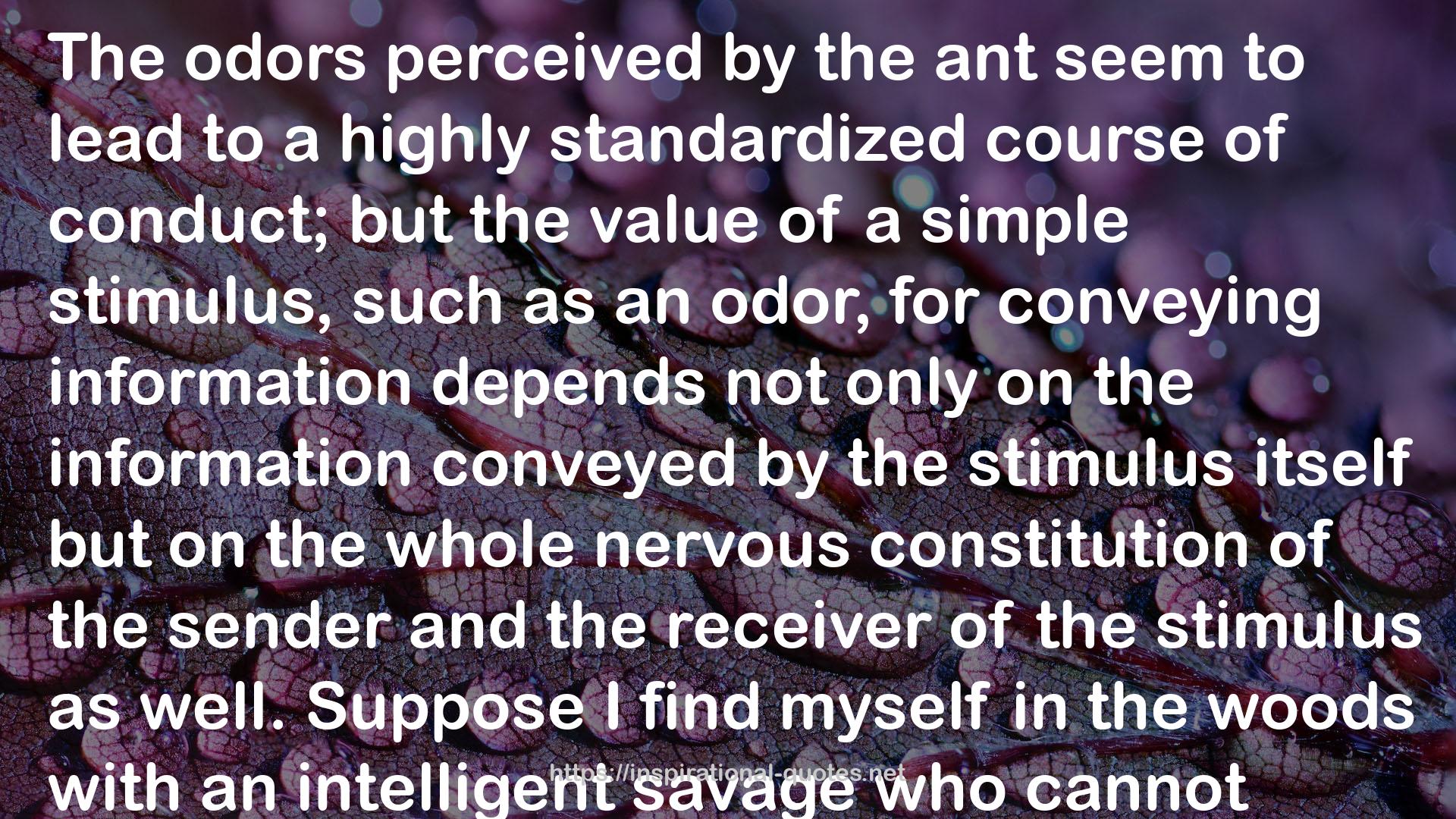" The odors perceived by the ant seem to lead to a highly standardized course of conduct; but the value of a simple stimulus, such as an odor, for conveying information depends not only on the information conveyed by the stimulus itself but on the whole nervous constitution of the sender and the receiver of the stimulus as well. Suppose I find myself in the woods with an intelligent savage who cannot speak my language and whose language I cannot speak. Even without any code of sign language common to the two of us, I can learn a great deal from him. All I need to do is to be alert to those moments when he shows the signs of emotion or interest. I then cast my eyes around, perhaps paying special attention to the direction of his glance, and fix in my memory what I see or hear. It will not be long before I discover the things which seem important to him, not because he has communicated them to me by language, but because I myself have observed them. In other words, a signal without an intrinsic content may acquire meaning in his mind by what he observes at the time, and may acquire meaning in my mind by what I observe at the time. The ability that he has to pick out the moments of my special, active attention is in itself a language as varied in possibilities as the range of impressions that the two of us are able to encompass. Thus social animals may have an active, intelligent, flexible means of communication long before the development of language. "
― Norbert Wiener , Cybernetics: or the Control and Communication in the Animal and the Machine
